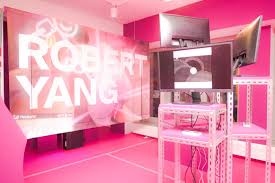Exhibition on LGBTQ gaming history opens in Berlin
Rainbow Arcade explores extensive but overlooked queer history of games
The Schwules Museum in Berlin has opened a new exhibition exploring the game industry's queer history.
Co-curated by museum curator Jan Schnorrenberg, German game journalist Sarah Rudolph, and Dr Adrienne Shaw from Temple University, the Rainbow Arcade is the first exhibition of its kind and shows a wide range of exhibits from the last 30 years.
The exhibition includes art, merchandise, video interviews with developers, and playable games such as Caper in Castro - one of the first openly queer games.
It is also accompanied by a supporting program from international developers, artists, and scientists.
With the Rainbow Arcade, the Schwules Museum intends to highlight the industry's extensive, but overlooked, LGBTIQ history.
"The thread of the exhibition is the remarkable fact that video games have become a natural part of our contemporary culture, but any new title that does not negatively represent LGBTIQ and its realities in life is quickly celebrated as groundbreaking or defamed as ideological politicisation," said the musuem in a statement.
"And this despite the fact that sensitive coming-out storylines and open marriages can already be found in mainstream titles of the 1990s.
"The exhibition does not only ask how societal discourses and developments in video games are reflected and what developments can be observed, but also what it actually says about our digital memory and the archiving of our contemporary culture, when media history is so quickly forgotten."
Co-curator Dr Adrienne Shaw also founded the LGBTQ Video Game Archvice website in 2016, as an attempt to catalogue content in games.
Speaking with The Guardian she said: "Until the archive, there just wasn't a historical understanding of LGBTQ content in this medium... It makes it really easy to forget that this kind of content has always been in games."

